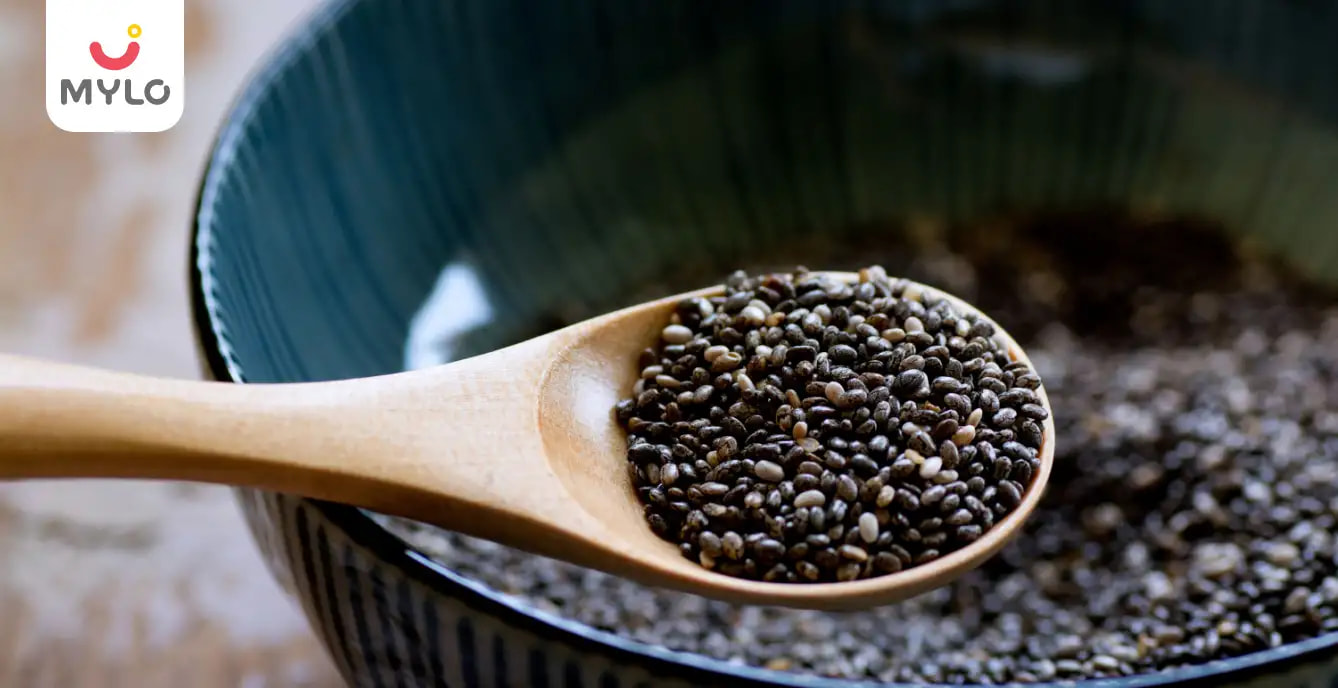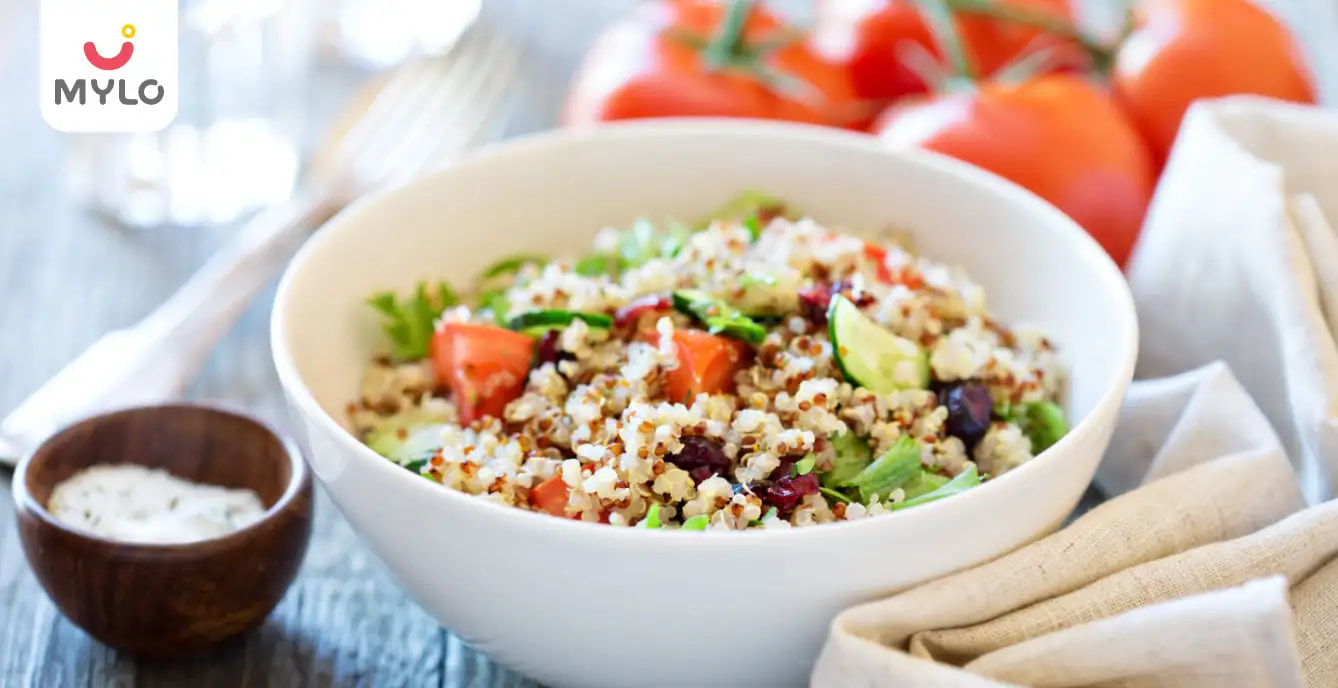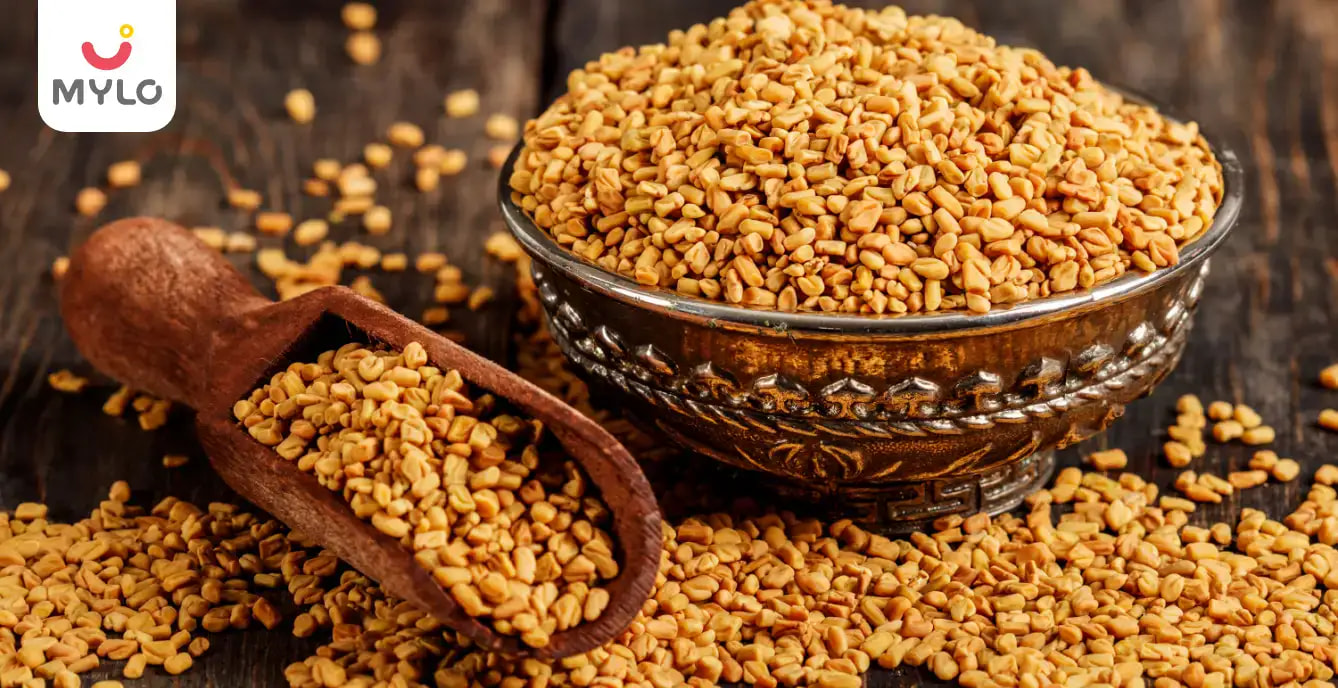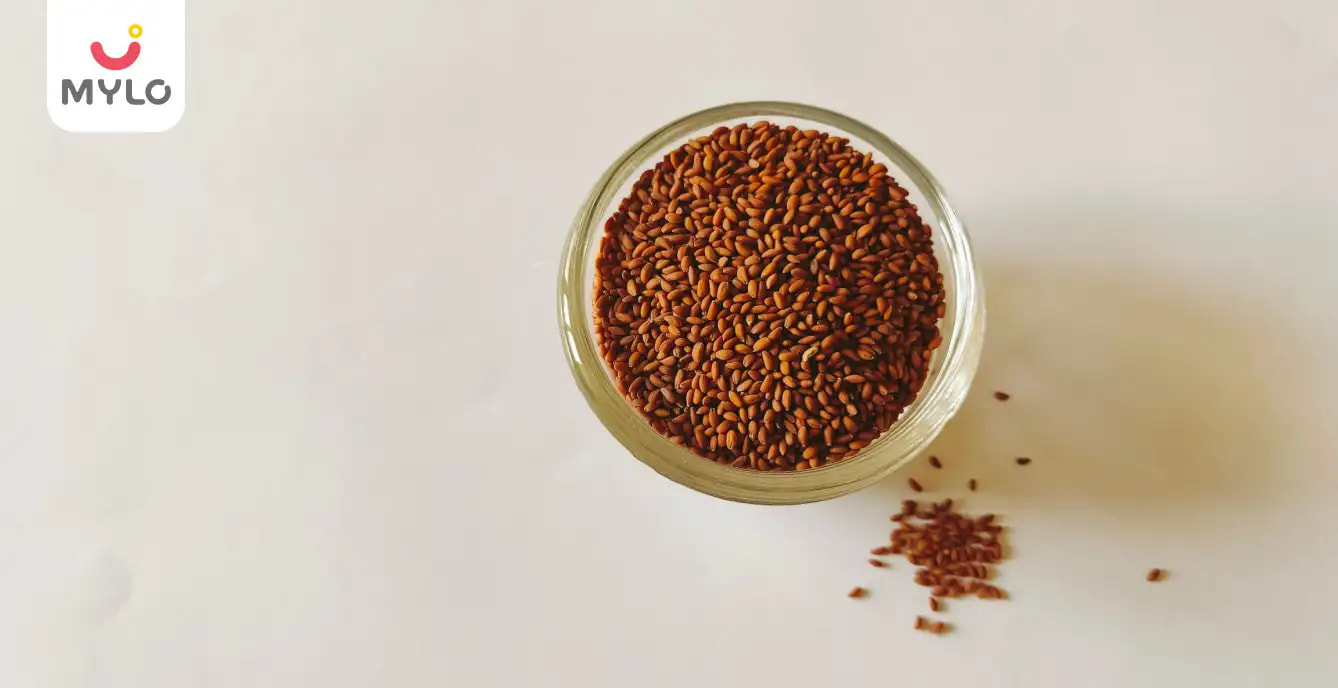Home

The Ultimate Guide to Consuming Tapioca During Pregnancy
In this Article
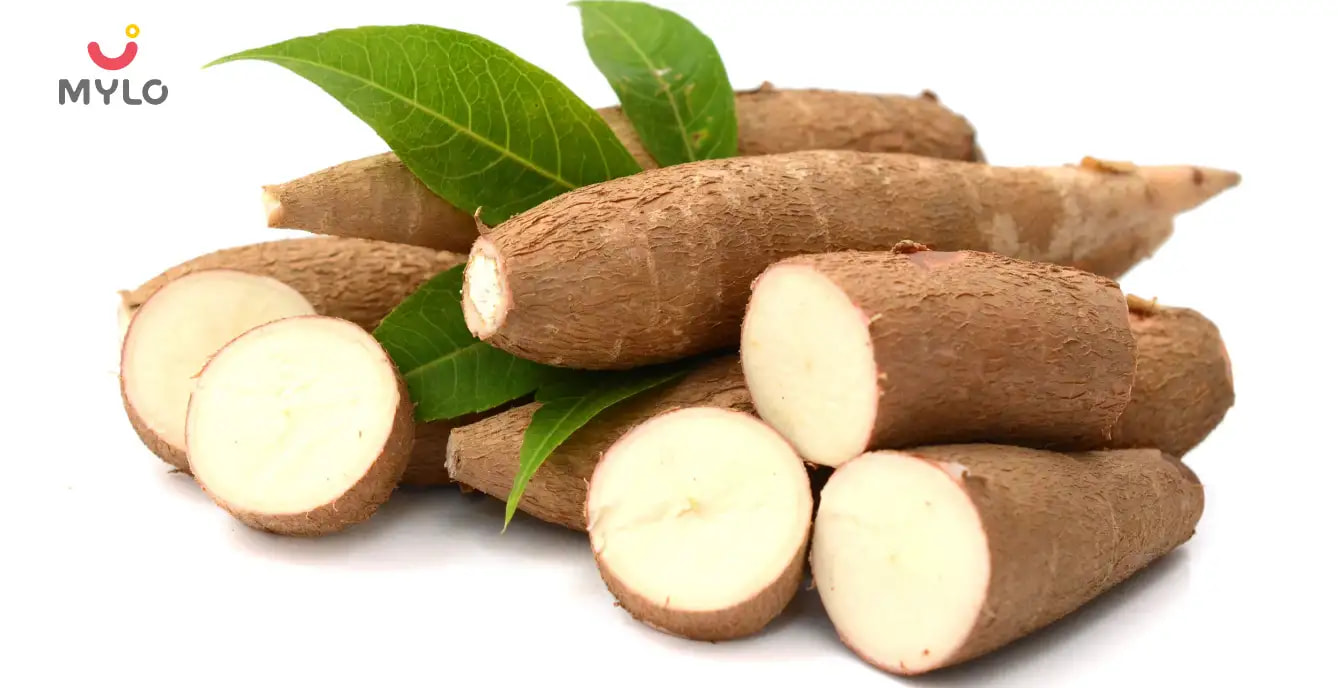
The Ultimate Guide to Consuming Tapioca During Pregnancy
Updated on 7 February 2024
Tapioca is a popular food ingredient derived from the cassava plant. It is widely consumed around the world and has gained attention in recent years for its potential health benefits. In this article, we will explore the nutritional content of tapioca, highlight the benefits of consuming tapioca during pregnancy and provide precautions to follow.
Nutritional Content of Tapioca
Tapioca offers a range of nutritional benefits. A 100-gram serving of dry tapioca pearls contains:
Calories: 358
Fat: 0.02g
Carbohydrates: 88.7g
Fiber: 0.9g
Sugars: 3.35g
Protein: 0.2g
Is Tapioca Good for Pregnancy?
Yes, tapioca can be a beneficial addition to a pregnant woman's diet. Its nutritional profile makes it a valuable source of energy and essential nutrients required for the healthy growth and development of both the mother and the baby.
The presence of folate in tapioca is particularly noteworthy, as it helps prevent neural tube defects in the baby. Moreover, tapioca's gluten-free nature makes it a safe and suitable option for pregnant women with gluten sensitivities or celiac disease.
You may also like: Sabudana in Pregnancy: Nutritional Benefits and Other Advantages
What are the Benefits of Consuming Tapioca in Pregnancy?
Here are the key benefits of consuming tapioca for pregnant women and their babies:
1. Aids in Digestion
Tapioca contains resistant starch, which acts as a prebiotic and promotes the growth of beneficial gut bacteria. This can help alleviate common digestive issues such as constipation, which is a common complaint during pregnancy.
2. Boosts Energy Levels
Tapioca is rich in carbohydrates, providing a quick and sustained energy boost. This can be particularly beneficial during the later stages of pregnancy when fatigue may be more pronounced.
3. Supports Fetal Development
The presence of folate in tapioca is essential for proper fetal development, especially in the early stages of pregnancy. Adequate folate intake helps prevent neural tube defects and supports the growth of the baby's brain and spinal cord.
4. Promotes Bone Health
Tapioca contains calcium, a mineral crucial for the development and maintenance of strong bones and teeth. This is essential not only for the baby but also for the mother.
5. Provides Iron
Iron is vital during pregnancy to support the increased blood volume and prevent anemia. Tapioca contains iron, which aids in the production of red blood cells and helps prevent complications associated with iron deficiency.
6. Gluten-Free Option
For pregnant women with gluten sensitivities or celiac disease, tapioca offers a safe and delicious gluten-free alternative to traditional grains.
7. Versatile in Cooking
Tapioca can be used in a variety of dishes, including puddings, soups, and baked goods. Its versatility allows pregnant women to incorporate it into their diet in various ways, adding both nutrition and flavor to their meals.
You may also like: Arbi in Pregnancy: The Ultimate Guide to Benefits and Risks
Precautions to Follow While Eating Tapioca During Pregnancy
While tapioca can be a healthy addition to a pregnant woman's diet, it is important to keep the following precautions in mind:
1. Moderation is Key
As with any food, moderation is crucial. While tapioca offers nutritional benefits, consuming excessive amounts may lead to an imbalance in the diet. Aim for a well-rounded diet that includes a variety of nutrient-rich foods.
2. Monitor Blood Sugar Levels
Tapioca is high in carbohydrates and can cause a rapid rise in blood sugar levels. Pregnant women with gestational diabetes or those at risk for developing diabetes should monitor their blood sugar levels closely and work with their healthcare provider to determine appropriate serving sizes.
3. Consult with a Healthcare Professional
As with any dietary changes during pregnancy, it is always recommended to consult with a healthcare professional or a registered dietitian. They can provide personalized guidance based on your specific needs and health condition.
5 Ways to Consume Tapioca for Pregnant Women
Here are some ways in which pregnant women can incorporate tapioca in their diet:
1. Tapioca Pudding
A classic and delicious way to enjoy tapioca is by making a creamy tapioca pudding. Combine tapioca pearls with milk, sugar, and flavorings of your choice for a comforting and nutritious dessert.
2. Tapioca Soup
Tapioca can be added to soups and stews to enhance their texture and provide a satisfying meal. Consider incorporating tapioca pearls into your favorite vegetable or meat-based soups for an extra dose of nutrition.
3. Tapioca Flour
Tapioca flour, also known as tapioca starch, can be used as a gluten-free alternative to wheat flour. It adds a light and fluffy texture to baked goods. Experiment with tapioca flour in cookies, cakes, and bread recipes to discover new flavors.
4. Tapioca in Smoothies
Add a tablespoon of tapioca pearls or tapioca flour to your favorite smoothie for a boost of energy and a thicker consistency. It can add a unique texture and make your smoothie more satisfying.
5. Tapioca in Savory Dishes
Tapioca pearls can be used in savory dishes as well. Consider incorporating them into curries, stir-fries, or even as a thickening agent for sauces and gravies. Their versatility allows you to be creative in the kitchen and explore new flavors.
You may also like: Sweet Potato During Pregnancy: Benefits, Risks & Side Effects
FAQs
1. Are There Any Side Effects of Tapioca in Pregnancy?
Tapioca is generally safe to consume during pregnancy when cooked properly and consumed in moderation. However, some individuals may experience digestive discomfort, such as bloating or gas, after consuming tapioca.
2. Can I Eat Tapioca Chips During Pregnancy?
Tapioca chips, similar to potato chips, are a popular snack option. While they can be enjoyed in moderation, it is important to consider their nutritional profile. Tapioca chips are often fried and may contain added salt and unhealthy fats. Opt for baked or air-fried varieties and consume them as an occasional treat rather than a regular snack.
You may also like: What are the Top 10 Foods Every Woman Should Avoid During Her Pregnancy?
Final Thoughts
Tapioca during pregnancy can be a nutritious and delicious addition to a pregnant woman's diet. Its rich nutritional content, including essential vitamins and minerals, makes it a beneficial choice during pregnancy. However, it is crucial to consume tapioca in moderation and as part of a well-rounded diet. So go ahead and enjoy tapioca in its various forms, and savor the taste and benefits it brings to your pregnancy journey!
References
1. Jouanne M, Oddoux S, Noël A, Voisin-Chiret AS. (2021). Nutrient Requirements during Pregnancy and Lactation. Nutrients.
Tags
Tapioca During Pregnancy: Benefits & Side Effects in Hindi, Tapioca During Pregnancy: Benefits & Side Effects in Tamil, Tapioca During Pregnancy: Benefits & Side Effects in Telugu, Tapioca During Pregnancy Benefits & Side Effects in Bengali



Written by
Anupama Chadha
Anupama Chadha, born and raised in Delhi is a content writer who has written extensively for industries such as HR, Healthcare, Finance, Retail and Tech.
Read MoreGet baby's diet chart, and growth tips

Related Articles
Related Questions
Hello frnds..still no pain...doctor said head fix nhi hua hai..bt vagina me pain hai aur back pain bhi... anyone having same issues??

Kon kon c chije aisi hai jo pregnancy mei gas acidity jalan karti hain... Koi btayega plz bcz mujhe aksar khane ke baad hi samagh aata hai ki is chij se gas acidity jalan ho gyi hai. Please share your knowledge

I am 13 week pregnancy. Anyone having Storione-xt tablet. It better to have morning or night ???

Hlo to be moms....i hv a query...in my 9.5 wk i feel body joint pain like in ankle, knee, wrist, shoulder, toes....pain intensity is high...i cnt sleep....what should i do pls help....cn i cosult my doc.

Influenza and boostrix injection kisiko laga hai kya 8 month pregnancy me and q lagta hai ye plz reply me

RECENTLY PUBLISHED ARTICLES
our most recent articles

Braxton Hicks
Braxton Hicks Contractions or Real Labor: How to Tell Them Apart?

Pregnancy Journey
Top 10 Tips For The Third Trimester Of Your Pregnancy

Maternity Benefits
Maternity Leave 101: Rules, Benefits & Timings for Expectant Working Women
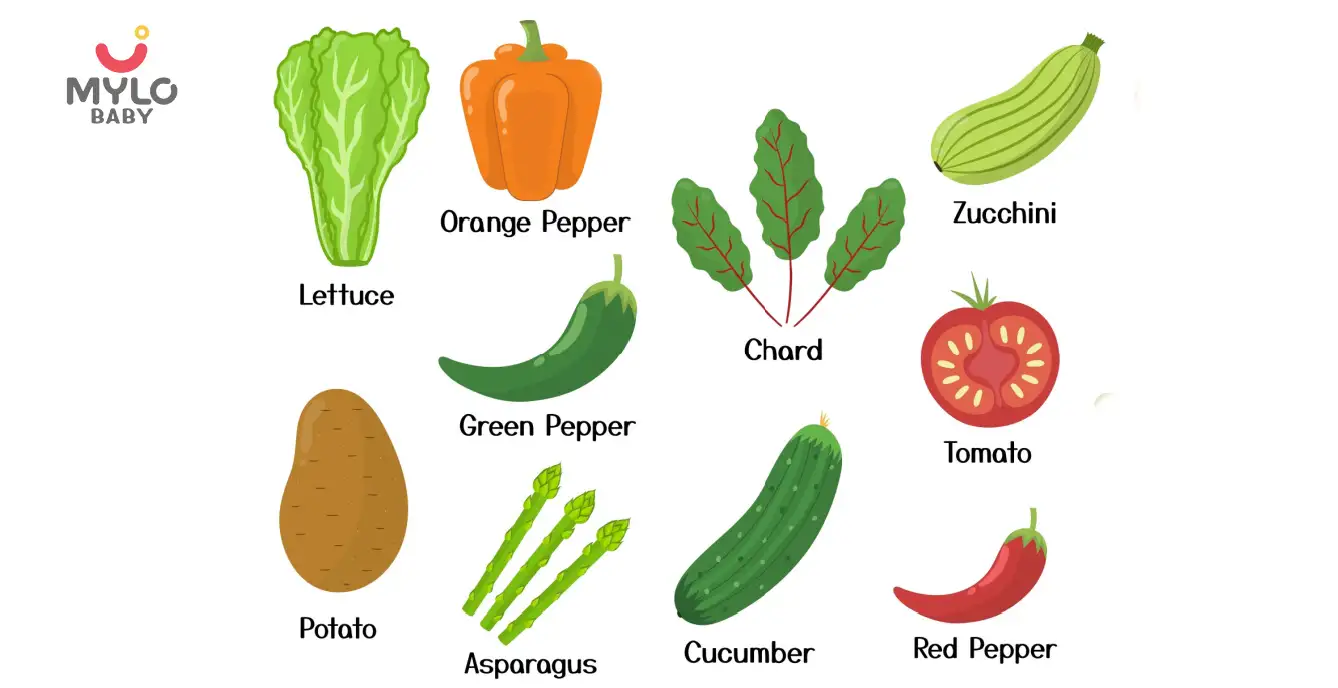
Education
The A-Z Guide to Identifying Summer Vegetables for Kids

Baby Names
Christian Baby Girl Names That Stand the Test of Time
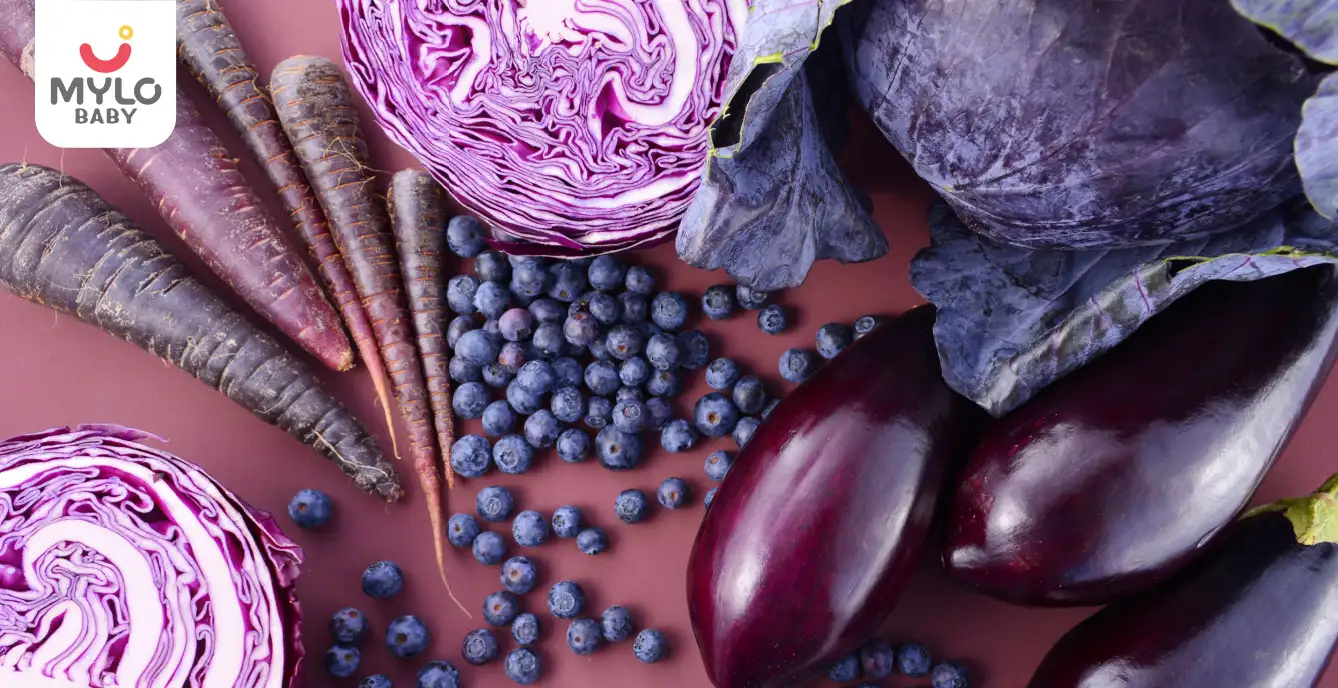
Education
The A-Z Guide on Purple Colour Fruits and Vegetables for Kids
- The A-Z Guide on Red Colour Fruits & Red Colour Vegetables for Kids
- The A-Z Guide on Yellow Fruits & Yellow Colour Vegetables for Kids
- Cervical Cancer: Causes, Symptoms & Prevention
- The A-Z Guide to Identifying Stem Vegetables for Kids
- Can Fetal Heartbeat Disappear and Reappear?
- The Ultimate Guide to Teaching Children 20 to 30 Tables
- GK Questions for Kids from Nursery to Class 6
- Height and Weight Chart for Boys and Girls in India
- The A-Z Guide to Identifying Winter Vegetables for Kids
- Dalia in Pregnancy: A Superfood for the Health of Both Mom and Baby
- 1st Birthday Wishes for Your Little One's Big Day
- The Ultimate Guide to Consuming Litchi During Pregnancy
- Almonds in Pregnancy: Cracking the Nutty Secret to Their Benefits
- Popping the Question: Is It Safe to Indulge in Popcorn in Pregnancy?


AWARDS AND RECOGNITION

Mylo wins Forbes D2C Disruptor award

Mylo wins The Economic Times Promising Brands 2022
AS SEEN IN
















- Mylo Care: Effective and science-backed personal care and wellness solutions for a joyful you.
- Mylo Baby: Science-backed, gentle and effective personal care & hygiene range for your little one.
- Mylo Community: Trusted and empathetic community of 10mn+ parents and experts.
Product Categories
baby carrier | baby soap | baby wipes | stretch marks cream | baby cream | baby shampoo | baby massage oil | baby hair oil | stretch marks oil | baby body wash | baby powder | baby lotion | diaper rash cream | newborn diapers | teether | baby kajal | baby diapers | cloth diapers |



